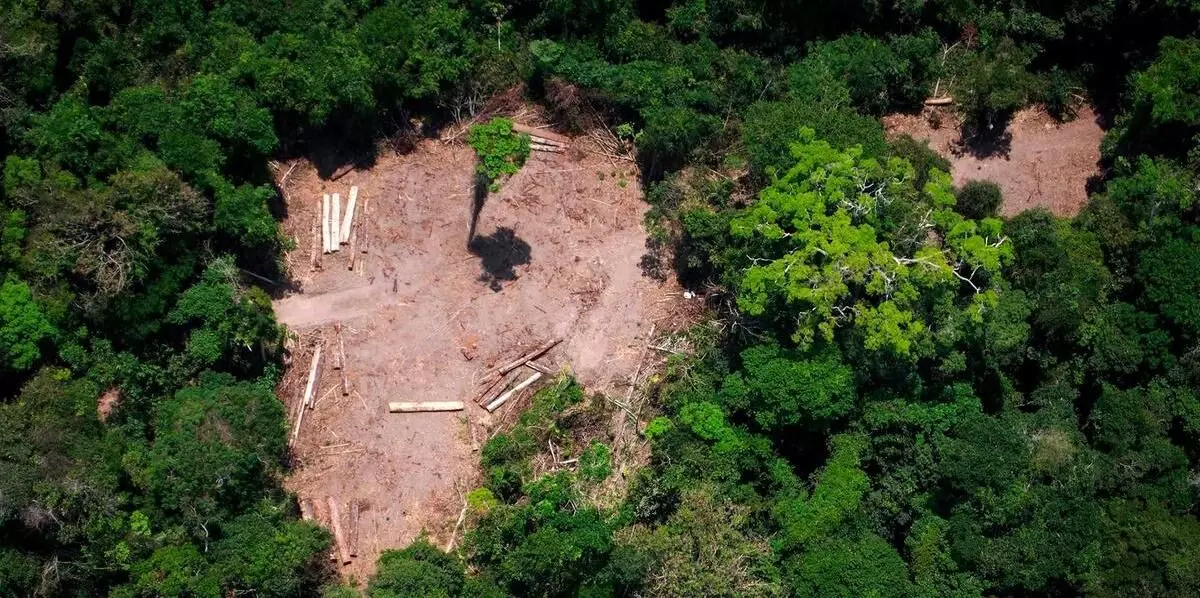
Disease outbreaks more likely in deforestation areas, study finds
text_fieldsPandemic and outbreak of infectious diseases are more likely to emerge in areas of deforestation and monoculture plantations, says a study published in the journal Frontiers in Veterinary Science.
Using statistics from international institutions such as the World Health Organization, the World Bank, the Food and Agricultural Organization etc, the researchers looked at the changes in forest cover around the world between 1990 and 2016 and compared these results to the local population densities and outbreaks of vector-borne and zoonotic diseases.
The study covered 3,884 outbreaks of 116 zoonotic diseases that crossed the species barrier and 1,996 outbreaks of 69 vector-borne infectious diseases, mostly carried by mosquitoes, ticks or flies.
The results showed that as plantation increased and forest cover declined gradually, outbreaks have considerably increased.
Similar to the earlier studies that had already claimed that both afforestation and palm oil plantations likely played a major role in further spreading disease vectors, the recent study also found a strong correlation between deforestation and epidemics like malaria and Ebola in tropical countries like Brazil, Peru, Bolivia, etc.
Diseases are filtered and blocked by a range of predators and habitats in a healthy, biodiverse forest but commercial forests focus on planting only very few species. When such biodiverse areas are cleared to plant just palm oil, soy or block of Eucalyptus, many of the animal species die leaving only the rats and mosquitoes that thrive enabling them to easily spread the pathogens to humans.
Viruses are more likely to transfer to humans if they live in or near human-disturbed ecosystems such as recently cleared forests or swamps, mining projects, etc.
"We should take the costs of public health into account when considering new plantations or mines. The risks are first to local people, but then worldwide because we have seen with Covid how quickly diseases can spread", said Serge Morand, one of the study authors.
Commercial plantations, land abandonment, and grassland conversion to forests are proving out to be inflicting total catastrophe across the world and hence careful forest management is to be taken as one of the critical components in preventing future epidemics, suggested the researchers.
"We must give more consideration to the role of the forest in human health, animal health and environmental health. The message from this study is 'don't forget the forest' ", added Morand.
























